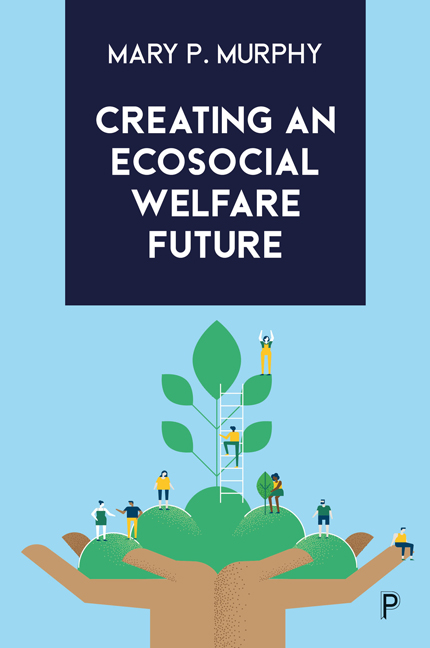Book contents
- Frontmatter
- Dedication
- Contents
- List of figures and tables
- Acknowledgements
- Introduction: The case for a welfare imagination
- PART I From problems to solutions: a post-growth ecosocial political economy
- PART II Building an ecosocial imaginary
- PART III An ecosocial political imaginary
- Conclusion: The case for systemic transformation
- Appendix: Ireland
- Notes
- References
- Index
1 - Commodification and decommodification
Published online by Cambridge University Press: 20 January 2024
- Frontmatter
- Dedication
- Contents
- List of figures and tables
- Acknowledgements
- Introduction: The case for a welfare imagination
- PART I From problems to solutions: a post-growth ecosocial political economy
- PART II Building an ecosocial imaginary
- PART III An ecosocial political imaginary
- Conclusion: The case for systemic transformation
- Appendix: Ireland
- Notes
- References
- Index
Summary
This chapter begins by examining the contemporary globalised and financialised eco-political economy and draws on a Polanyian framework and the concept of commodification. It identifies the problem, and the related social and ecological destruction, as commodification, and uses the concept of decommodification to frame potential solutions, pointing to an ecosocial project that de-emphasises the role of the market in favour of an enhanced role for the state and society. It argues that states should focus on addressing need through social, public and local mechanisms in which we care for each other and put our planet at the centre of our policy processes. The chapter concludes by assessing the Irish political economy and market, and its commodified policies and outcomes.
Capitalism and neoliberalism
While the focus in this book is on the ills of the 21st-century political economy, it is useful to recall how capitalism emerged in the 16th century on the back of organised violence, generating mass impoverishment and systematic destruction of previously self-sufficient subsistence economies (Hickel, 2021, p 48). Capitalism worked by impoverishing people in the pursuit of growth which was achieved through excessive profit and accumulation. Traditional welfare systems (granaries, communal irrigation systems, commons) were destroyed and hunger became an everyday threat, while new harsh rules forced people who had lived subsistence lifestyles to work for the benefit of others (Hickel, 2021, p 60; and Chapter 4).
The brutality of this is demonstrated in one simple statistic: life expectancy decreased from an average of 43 years in the 1500s to the low 30s in the 1700s (and as low as 25 years in Manchester) (Hickel, 2021, p 50). Through brutal processes of enclosure of the commons (which describes the accessibility of natural, cultural and societal resources to all members of the society) and the external processes of colonisation, slavery and extraction, capitalism expanded and grew. With profit continually reinvested, growth accelerated ‘like a virus’ (Hickel, 2021, p 87). The 1830s period of transition in Britain, known as the ‘great transformation’, has also been described as an ‘abrupt’, ‘brutal shock’, ‘a lacerating operation’ with the market mechanism eating into the ‘marrow of society’ (Polanyi, 1944, p 106).
- Type
- Chapter
- Information
- Creating an Ecosocial Welfare Future , pp. 13 - 28Publisher: Bristol University PressPrint publication year: 2023

